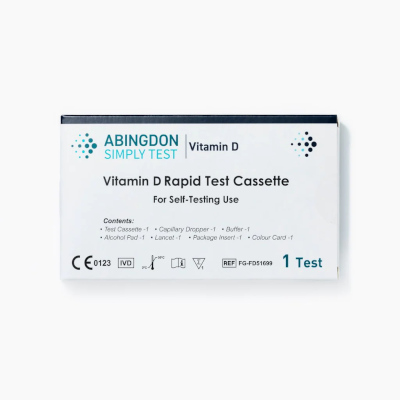Description
Vitamin D refers to a group of fat-soluble secosteroids responsible for increasing intestinal absorption of calcium, iron, magnesium, phosphate and zinc. In humans, the most important compounds in this group are vitamin D3 and vitamin D2. Vitamin D3 is naturally produced in the human skin through the exposure to ultraviolet light and Vitamin D2 is mainly obtained from foods.
Virtually every cell in our body has Receptors for Vitamin D, meaning that they all require "Sufficient" Level of Vitamin D for adequate functioning. The health risks associated with Vitamin D deficiency are far more severe than previously thought. Vitamin deficiency has been linked to various serious diseases: Osteoporosis, Osteomalacia, Multiple Sclerosis, Cardiovascular Diseases, Pregnancy Complications, Diabetes, Depression, Strokes, Autoimmune Diseases, Flu, Different Cancers, Infectious Diseases, Alzheimer, Obesity and Higher Mortality.
How to use:
Wash your hands with soap and rinse with warm water.
Bring the pouch to room temperature before opening it. Open the foil pouch and remove the cassette.
Carefully pull off and dispose of the cap of the Iancet.
Use the provided alcohol pad to clean the fingertip of the middle or ring finger as the puncture site.
Press the Iancet on the side from where the cap was removed, against the fingertip until you hear a click.
Keep the hand down and massage the finger to obtain a blood drop.
Without squeezing the bulb, place the capillary dropper against the blood drop until the blood fills to the line on the dropper.
Place the blood into the sample well on the cassette.
After the blood has dispensed into the well, add the buffer solution.
Wait for the lines to appear in the test window and compare to the results chart


